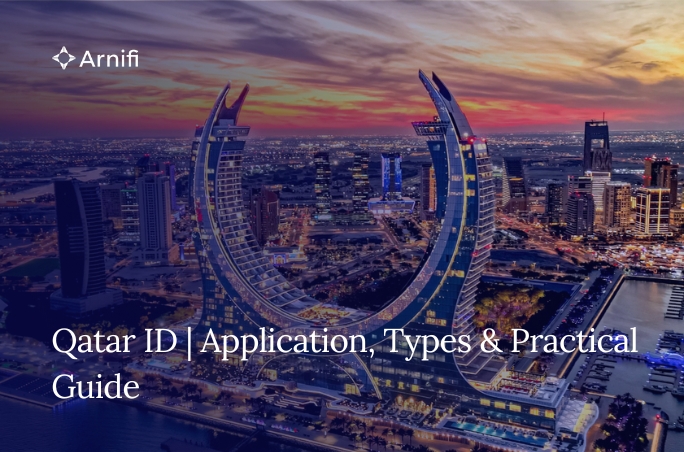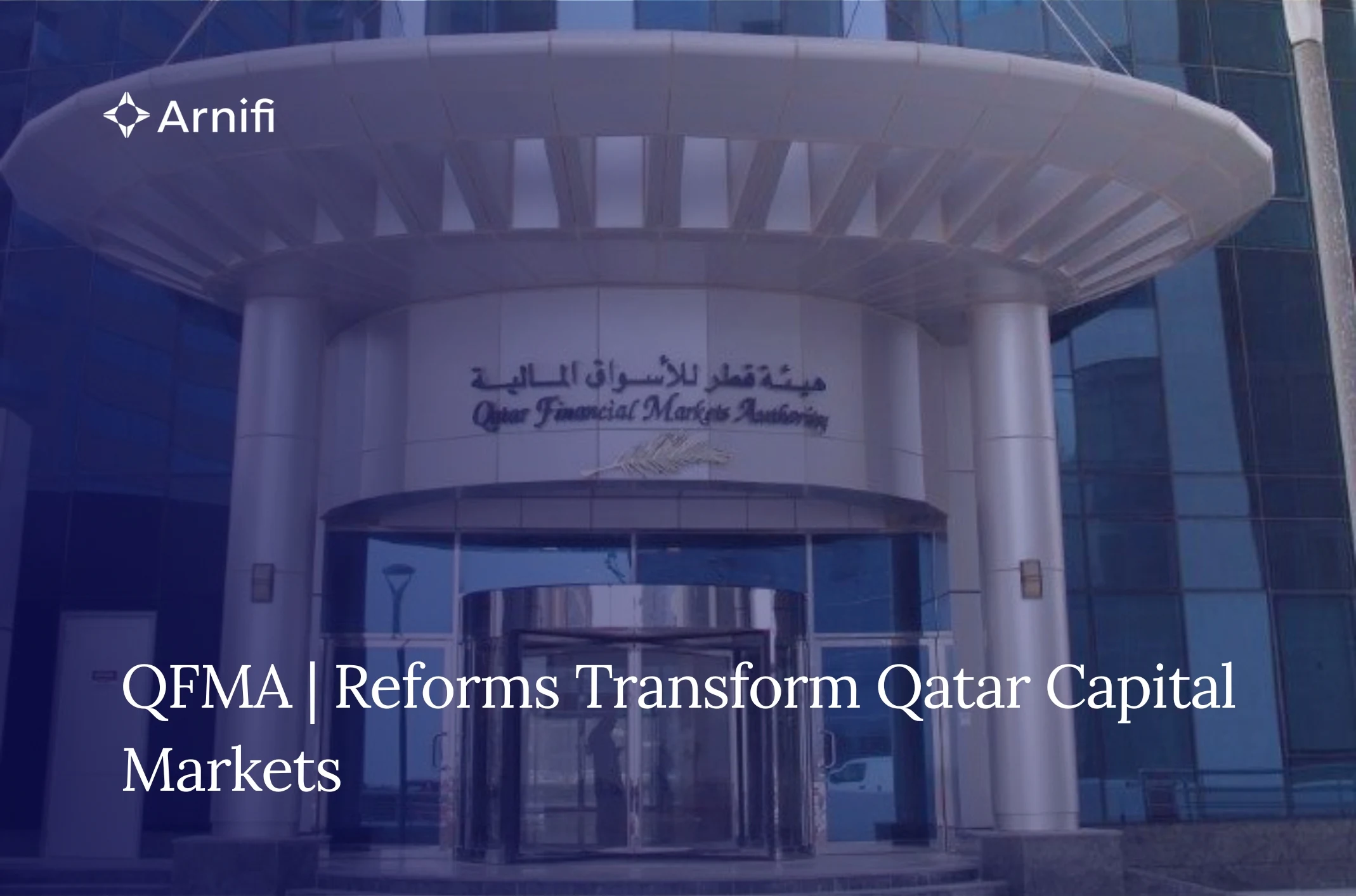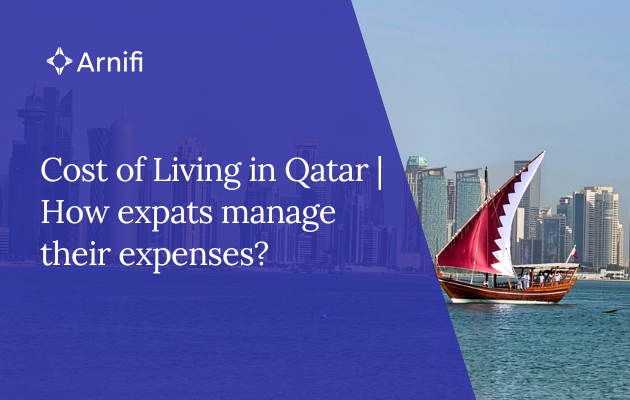Navigating Labor Laws in Qatar Free Zones
by Shethana Jun 17, 2024  14 MIN READ
14 MIN READ

Curious about the Labor Laws in the QFZ? Qatar Free Zones are designed to optimize business operations and provide a favorable environment for companies seeking to expand their global operations. Connected to award-winning air and seaports, these free zones offer easy access to markets in the Middle East, North Africa, Europe, and Western Asia. The free zones focus on key sectors where Qatar has a strong value proposition, including construction and real estate, consumer goods, energy and environmental technologies, and information and communication technology (ICT). By creating specialized areas for these sectors, Qatar Free Zones facilitate research, development, and partnerships, fostering innovation and growth.
Key Benefits for Businesses and Employees
Qatar Free Zones offer a range of benefits for businesses and employees alike. Some key benefits include:
- Access to outstanding growth opportunities in a rapidly growing economy.
- State-of-the-art digital infrastructure, enabling businesses to thrive in the digital age.
- 100% foreign ownership, providing businesses with full control and flexibility.
- Tax holidays and no personal income tax, allowing businesses to maximize their profitability.
- Access to a skilled and diverse workforce, supported by a comprehensive visa and permit regime.
Comprehensive Guide to Labor Regulations
To ensure a fair and regulated working environment, Qatar Free Zones adhere to comprehensive labor regulations. These regulations are governed by the Ministry of Administrative Development, Labour, and Social Affairs. They cover various aspects, including working hours, wages, leave policies, health and safety, and workers’ compensation. Additionally, personal income tax is not applicable in the free zones, providing an added incentive for businesses and employees.
General Labor Laws Applicable in Free Zones
Labor laws applicable in Qatar Free Zones are in line with the regulations set by the Ministry of Administrative Development, Labour, and Social Affairs. These laws govern important aspects such as working hours, employment contracts, termination procedures, and employee rights. The Ministry plays a crucial role in ensuring fair and equitable treatment of workers, promoting a healthy work environment, and enforcing labor laws to protect employee rights.
Specific Regulations for Hiring Practices
When it comes to hiring practices, Qatar Free Zones have specific regulations in place. Prior approval from the Ministry of Interior is required for hiring expatriates. This approval ensures that businesses comply with the necessary procedures and legal requirements. However, there is no rule regarding the employment of a minimum number of local employees in the free zones. This flexibility allows businesses to hire talent from both local and international markets, making Qatar Free Zones an attractive destination for companies looking to expand their operations.
Steps to Set Up a Business in Qatar Free Zones
Setting up a business in Qatar Free Zones involves a streamlined process facilitated by the Qatar Free Zones Authority (QFZ). The steps include:
- Apply for a license: Start by submitting an online enquiry through the QFZ website to receive your Investor Portal login credentials.
- Complete the application: Submit your project description and required documents. If approved, your license will be issued within 24 hours.
- Choose your real estate: Determine the type of real estate solution that suits your business’s current and future development plans.
- By following these steps, businesses can quickly establish their presence in Qatar Free Zones and benefit from the exciting business opportunities available.
Registration and Licensing Requirements
Registration and licensing requirements are an essential part of setting up a business in Qatar Free Zones. Businesses need to complete an online enquiry and provide project details for evaluation. Once approved, the QFZ issues the necessary licenses within 24 hours, allowing businesses to commence operations promptly. The registration and licensing process is facilitated through the QFZ’s Investor Portal, providing a seamless and efficient experience for businesses.
Real Estate and Infrastructure Options
Qatar Free Zones offer a range of real estate and infrastructure options for businesses. The free zones are strategically located near award-winning air and seaports, enabling efficient logistics and supply chain management. Businesses can choose from options such as land for self-build projects, pre-built industrial and warehousing units, and fully-fitted or shell office spaces. The availability of state-of-the-art infrastructure and competitive land pricing makes Qatar Free Zones an attractive destination for businesses seeking to establish a presence in the region.
Employee Rights and Welfare in Qatar Free Zones
Employee rights and welfare are of utmost importance in Qatar Free Zones. The labor laws applicable in the free zones, in line with the Ministry of Administrative Development, Labour, and Social Affairs, protect employees’ rights and ensure a fair working environment. These laws cover aspects such as minimum wage, working hours, leave policies, and health and safety regulations. Qatar Free Zones prioritize the well-being of employees, recognizing them as valuable contributors to the growth and success of businesses operating in the world’s gateway to the Middle East.
Working Hours, Wages, and Leave Policies
Working hours, wages, and leave policies in Qatar Free Zones are governed by labor laws that ensure fair treatment of employees. The minimum wage requirements, set by the Ministry of Administrative Development, Labour, and Social Affairs, provide a basic standard of living for workers. Additionally, the Wage Protection System (WPS) ensures that employees are paid their wages in a timely and transparent manner. Leave policies, including annual leave and sick leave, are also regulated to ensure employees’ well-being and work-life balance.
Health, Safety, and Workers’ Compensation
Health, safety, and workers’ compensation are paramount in Qatar Free Zones. The labor laws governing these aspects aim to provide a safe and healthy work environment for employees. Employers are required to comply with health and safety regulations to prevent accidents and occupational hazards. In the event of workplace injuries, workers’ compensation ensures that employees receive appropriate medical treatment and financial support. Qatar Free Zones prioritize the well-being and safety of employees, fostering a conducive and secure working environment.
Recruitment and Employment Strategies
Recruitment and employment strategies play a vital role in the success of businesses in Qatar Free Zones. The availability of a skilled and diverse workforce, supported by a comprehensive visa and permit regime, enables businesses to source talent from both local and international markets. Qatar Free Zones prioritize attracting leading companies and talent by connecting them with outstanding growth opportunities. The QFZ team is dedicated to assisting investors in sourcing talent, facilitating global operations, and ensuring a seamless recruitment and employment process.
Sourcing Talent Locally and Internationally
One of the key advantages of Qatar Free Zones is the availability of talent from both the local and international markets. The free zones provide businesses with access to a skilled and diverse workforce, ensuring that companies can find the right talent for their specific needs.
Locally, Qatar has invested significantly in building a skilled labor force through various educational and training programs. This ensures that businesses operating in the free zones have access to a pool of talented individuals who are well-versed in the latest industry practices.
Internationally, Qatar’s free zones attract professionals from around the world who are looking for exciting career opportunities. The diverse workforce brings a wealth of knowledge and experience to the free zones, contributing to innovation and growth.
By sourcing talent locally and internationally, businesses in Qatar Free Zones can create a dynamic and multicultural work environment that fosters creativity, collaboration, and success.
Onboarding Process and Integration
The onboarding process and integration of employees in Qatar Free Zones are crucial for ensuring a smooth transition and successful integration into the workforce. The QFZ team is dedicated to supporting businesses in this process and ensuring that employees feel welcomed and valued.
The onboarding process typically includes orientation sessions, where employees are provided with information about the company, its policies, and the free zone regulations. This helps them understand their roles and responsibilities within the organization.
Integration is facilitated through various activities such as team-building exercises, networking events, and cultural awareness programs. These initiatives promote a sense of belonging and foster strong relationships among employees, creating a positive work environment.
The QFZ team works closely with businesses to provide guidance and support throughout the onboarding and integration process, ensuring that employees have a smooth transition and can contribute to the growth and success of the company.
Visa and Residency Guidelines for Expatriates
Visa and residency guidelines play a crucial role in the employment of expatriates in Qatar Free Zones. These guidelines ensure that the hiring process is streamlined and that expatriate workers have the necessary documentation to legally work and reside in the country.
Expatriates coming to Qatar Free Zones from countries like India need to obtain the appropriate visa and residency permits. The QFZ team assists businesses in navigating the visa application process, ensuring that all necessary requirements are met.
By adhering to the visa and residency guidelines, businesses can ensure that their expatriate workforce is legally authorized to work in Qatar Free Zones, promoting compliance with labor regulations and contributing to a harmonious work environment.
Types of Visas and Application Procedures
There are different types of visas available for individuals working in Qatar Free Zones, each catering to specific employment categories. The application procedures for these visas are streamlined to facilitate a smooth process for businesses and their employees.
The most common types of visas include employment visas, business visas, and family visit visas. The QFZ team assists businesses in understanding the requirements and procedures for each visa category, ensuring that the correct visa is obtained for employees.
The application process typically involves submitting the necessary documents, such as passport copies, employment contracts, and medical certificates. The QFZ team provides guidance on the required documentation and supports businesses throughout the application process.
By following the correct visa application procedures, businesses can ensure that their employees have the necessary authorization to work in Qatar Free Zones, promoting compliance with labor regulations and fostering a productive work environment.
Residency Rights and Family Sponsorship
Residency rights and family sponsorship are important considerations for expatriates working in Qatar Free Zones. These rights and sponsorship options provide employees with the opportunity to bring their families to Qatar and create a stable home environment.
Expatriates who meet the residency requirements are eligible to apply for family sponsorship, allowing their immediate family members to join them in Qatar. The QFZ team provides guidance on the requirements and procedures for family sponsorship, ensuring a smooth process for employees.
Residency rights and family sponsorship not only promote a healthy work-life balance for employees but also contribute to the overall well-being and happiness of the workforce. Businesses that prioritize these rights and sponsorship options create a supportive work environment that attracts and retains talented professionals.
Dispute Resolution and Legal Framework
The dispute resolution process and legal framework in Qatar Free Zones are designed to ensure fair and efficient resolution of employment-related disputes. The Qatar International Court plays a significant role in this process, providing a platform for resolving disputes in a timely and impartial manner.
When disputes arise, mediation and arbitration are commonly used methods for resolution. Mediation involves a neutral third party facilitating discussions between the parties involved, while arbitration involves a neutral arbitrator making a binding decision based on the evidence presented.
The Qatar International Court plays a crucial role in enforcing the decisions made through mediation and arbitration, ensuring that the rights and interests of all parties are protected. This legal framework provides businesses and employees with confidence in the dispute resolution process.
Mediation and Arbitration in Employment Disputes
Mediation and arbitration are commonly used methods for resolving employment disputes in Qatar Free Zones. These alternative dispute resolution mechanisms provide a more efficient and cost-effective approach compared to traditional litigation.
In mediation, a neutral third party, known as a mediator, facilitates discussions between the parties involved in the dispute. The mediator helps the parties identify common ground and work towards a mutually acceptable resolution. Mediation promotes open communication and allows the parties to retain control over the outcome.
Arbitration, on the other hand, involves a neutral arbitrator who makes a binding decision based on the evidence presented by the parties. This decision is enforceable and provides a final resolution to the dispute.
By utilizing mediation and arbitration, businesses and employees in Qatar Free Zones can resolve employment disputes in a fair and timely manner, promoting a harmonious work environment.
Role of Qatar International Court
The Qatar International Court plays a crucial role in the dispute resolution process within Qatar Free Zones. It provides a legal framework for resolving employment-related disputes and ensures that the rights and interests of all parties involved are protected.
The court is responsible for enforcing the decisions made through mediation and arbitration, providing businesses and employees with assurance that the dispute resolution process is fair and impartial. This promotes confidence in the legal framework and encourages businesses to operate within Qatar Free Zones.
The Qatar International Court has a dedicated team of legal professionals who are experienced in handling employment disputes. Their expertise ensures that disputes are resolved efficiently, allowing businesses and employees to focus on their core activities and contribute to the growth of the free zones.
Tax Exemptions and Financial Incentives
Tax exemptions and financial incentives play a significant role in attracting businesses to Qatar Free Zones. These incentives provide businesses with a competitive edge and encourage investment and development within the zones.
The tax exemptions in Qatar Free Zones include:
- Zero corporate tax: Businesses operating within the free zones are exempt from corporate tax, allowing them to retain more profits for reinvestment and growth.
- Zero customs duty: Goods imported into the free zones are not subjected to customs duties, reducing costs for businesses and facilitating international trade.
- No personal income tax: Employees working in the free zones are not required to pay personal income tax, enhancing their disposable income and attracting talented professionals.
In addition to tax exemptions, Qatar Free Zones offer various financial incentives to support businesses. These incentives may include access to investment funds, financial grants, and partnership opportunities.
Conclusion
In conclusion, understanding and complying with labor regulations in Qatar Free Zones are essential for businesses and employees alike. With key benefits for all stakeholders, including tax exemptions and comprehensive support services, setting up a business in these zones can be advantageous. From recruitment strategies to dispute resolution mechanisms, the legal framework ensures fairness and protection. By prioritizing employee rights, welfare, and compliance with labor laws, businesses can thrive in the dynamic landscape of Qatar’s Free Zones. Stay informed, follow guidelines diligently, and leverage the incentives available to foster growth and success in this thriving business environment.
Frequently Asked Questions
How do labor laws in Qatar Free Zones differ from the mainland?
- Labor laws in Qatar Free Zones have their own regulatory framework, separate from the mainland. They are designed to attract industry-leading companies, promote economic growth, and support major projects like the FIFA World Cup.
What are the steps for reporting labor violations?
- Reporting labor violations in Qatar Free Zones involves contacting the relevant authorities, such as the Ministry of Administrative Development, Labor, and Social Affairs or the Ministry of Interior. Violations can also be reported through the Hamad helpline or the FIFA whistleblowing platform.
About Arnifi
Arnifi is digital first Corporate service provider helping companies enter the Middle East region, starting with UAE and Saudi Arabia markets. Founded and backed by professionals from Amazon, Souq and other large companies operating in KSA – the team understands what it takes to succeed as a startup in both UAE and Saudi Arabian markets, apart from going through the setup process multiple times. Arnifi will provide a truly digital experience to entry and scale up of companies both UAE and Saudi Arabia. Discover tailored solutions and strategic partnerships that propel your business forward. Check out at – www.Arnifi.com for more details.
Also Read: Logistics and Supply Chain Management in Qatar Free Zones.
Top Qatar Packages

Related Articles
Top Qatar Packages



